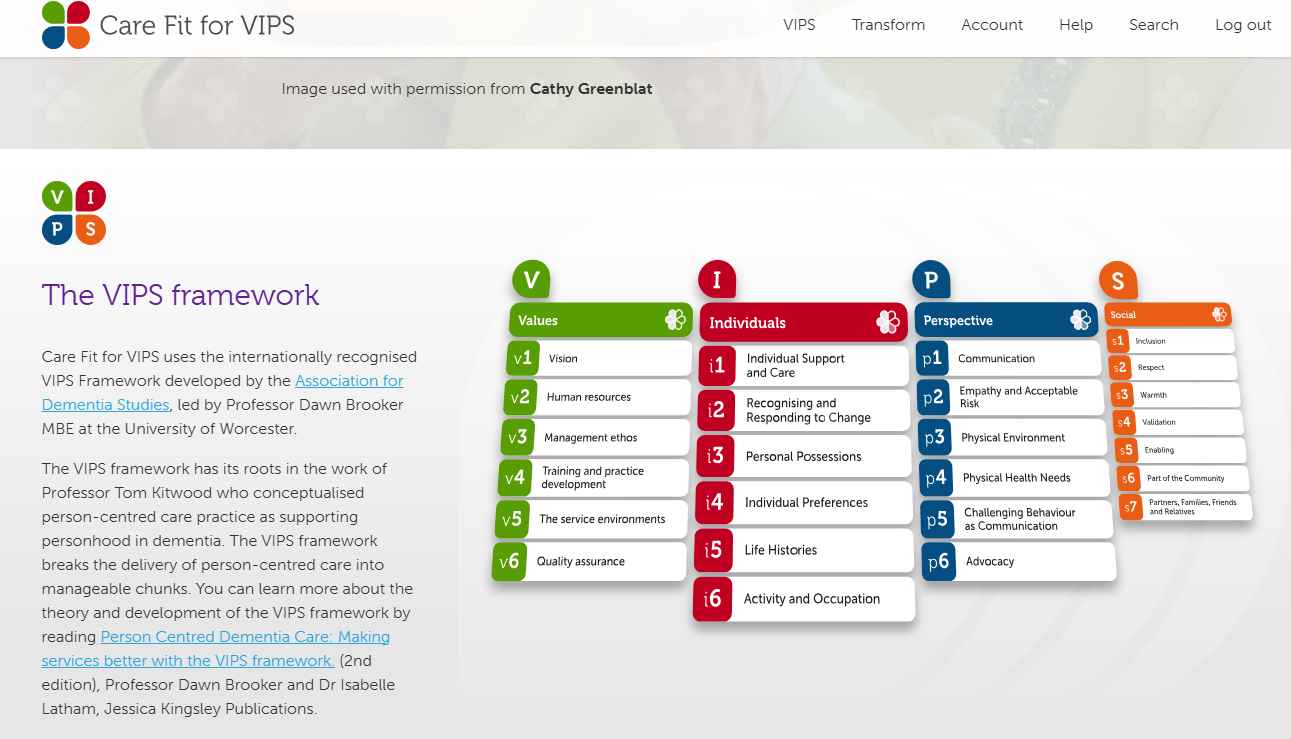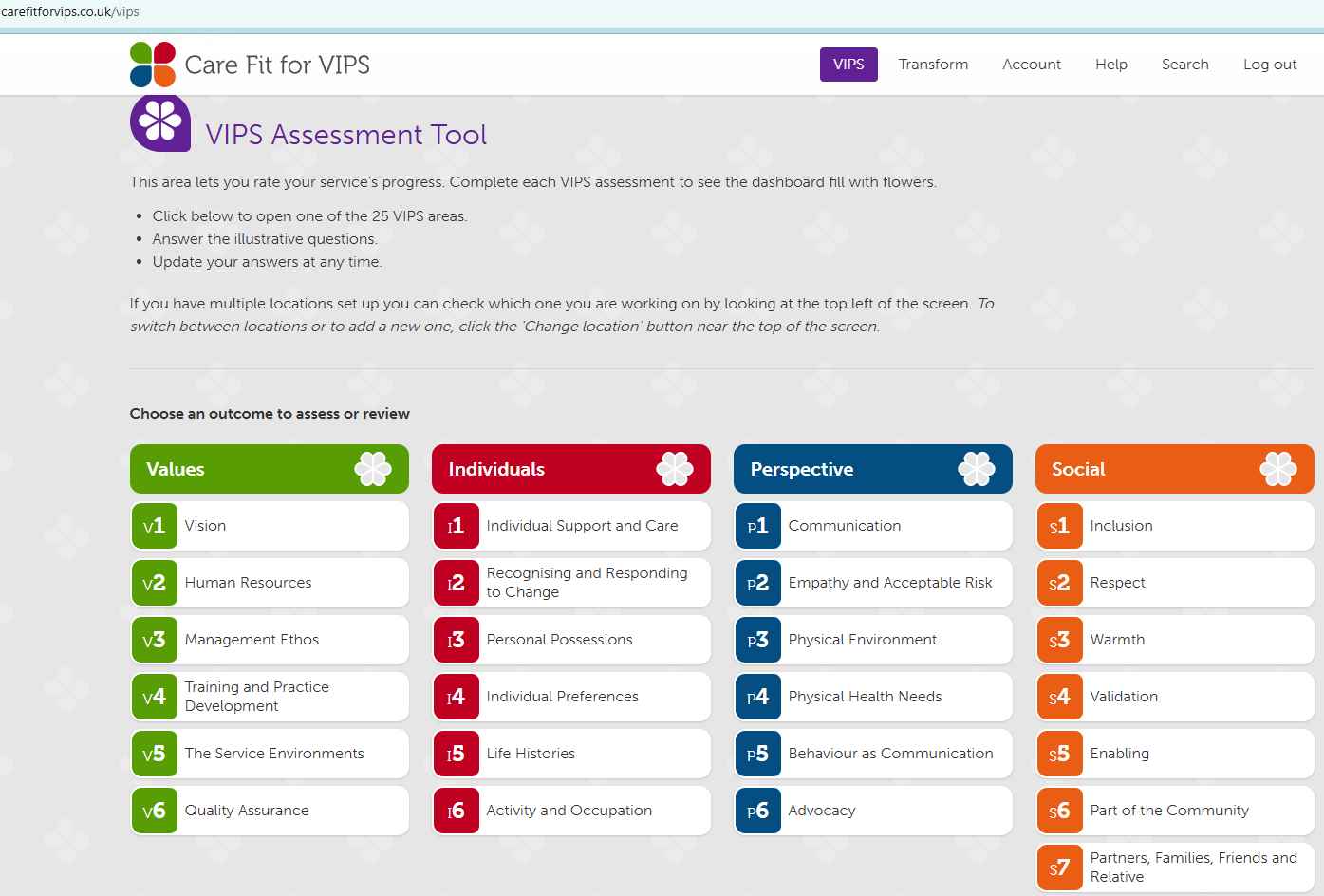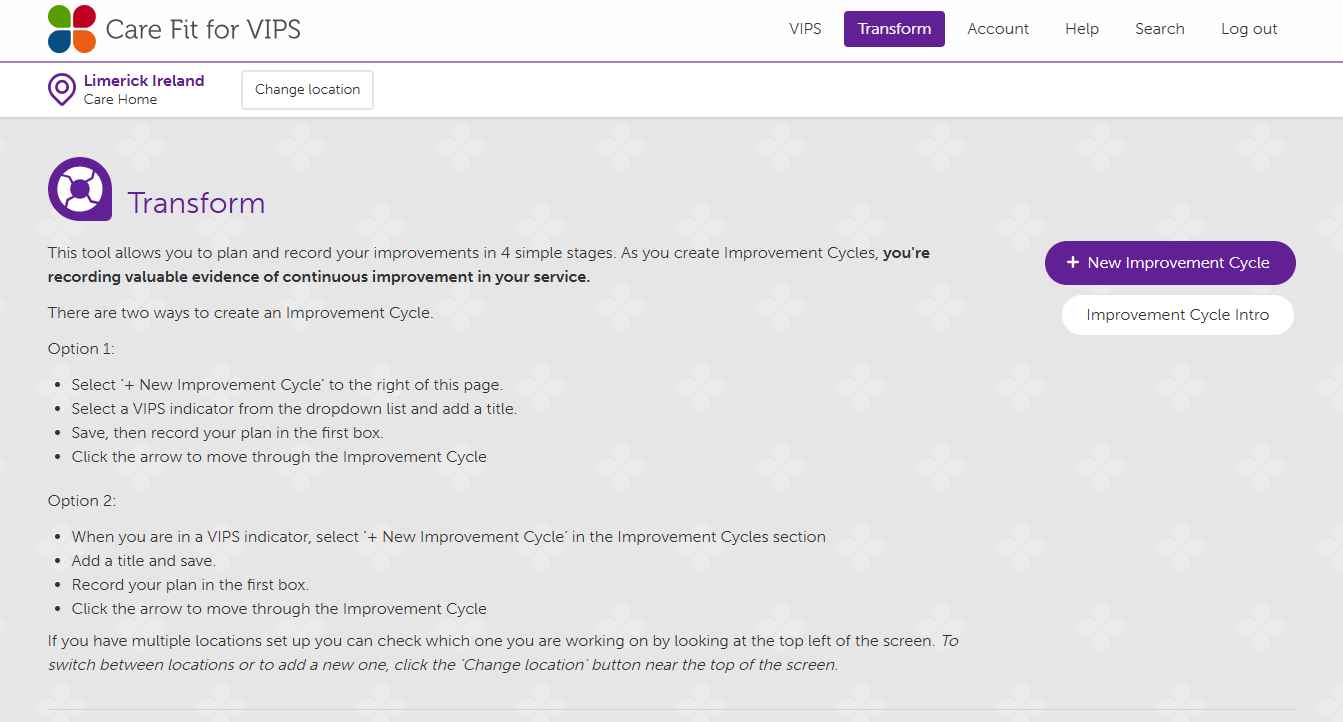NS6071 Principles Underpinning Dementia Care Assignment: Applying the VIPS Framework to Evaluate and Enhance Person-Centred Dementia Care
Department of Nursing and Midwifery Faculty of Education and Health Sciences
Part 1: VIPS Assignment
Date Set: Week 1
Date for Submission: Week 06 17/10/25, 23:00hrs
Weighting: 40%
Word Count: 1,200 (+/-10%), excluding Tables/Figures/References/Appendices.
Overview
The purpose of this assignment is to introduce students to the VIPS framework as a tool to underpin dementia care delivery. Considering the VIPS framework, students will provide a summary on how they believe their organization is performing in each of the four main elements. Students must select and justify a specific indicator which requires improvement, establish a new improvement cycle and reflect on the use of the VIPS framework.
The VIPS definition of person-centred care encompasses four major elements, each of which details key indicators that demonstrate person-centred care.
- V -Values (6 indicators), A value base that asserts the absolute value of all human lives regardless of age or cognitive ability.
- Individuals (6 indicators), An individualised approach, recognising uniqueness.
- P-Perspective (6 indicators), Understanding the world from the perspective of the person identified as needing support.
- S-Social (7 indicators), Providing a social environment that supports psychological needs.
Assignment Criteria (Total: 100 Marks)
- Access VIPS website: https://adsdementiablog.wordpress.com/2022/07/21/care-fit-for-vips-upgraded/
- Register an Account on the Care Fit for VIPS website: https://carefitforvips.co.uk/
- Considering the VIPS assessment Tool (include completed Tool in the appendix)
- Provide a summary on how your organisation is performing in each element.
- Select one indicator which requires improvement and justify the selection.
- Select Transform Tab. Select New Improvement Cycle. Establish and complete a New Improvement Cycle under the headings Plan, Do, Study, Act for the indicator.
- Reflect the use of the VIPS framework
Accessing VIPS website, registering an account and assignment completion
Are You Searching Answer of this Question? Request Ireland Writers to Write a plagiarism Free Copy for You.




Get Solution of this Assessment. Hire Experts to solve this assignment for you Before Deadline.
Part 2: OSCES
Date Set: Week 1
Assessment Date: Week 12
Weighting: 20%
Further detailed OSCE guidelines are provided in Clinical Skills Labs sessions.
Part 3: Case Study
Date Set: Week 1
Date for Submission: Week 14, 13/12/25, 23:00hrs
Weighting: 40%
Word Count: 1,200 (+/-10%), excluding Tables/Figures/References/Appendices.
Case Study:
Acknowledging that the individual experiences of the dementia journey are different for each person, this case study has set criteria. The Case Study (n=1) must include systematic history taking and be focused on assessment, including cognitive and non-cognitive aspects of functioning, mobility and functional skills, with potential for diagnosing dementia/stage of dementia progression. The case study must critically discuss the data collected with reference to relevant policy, guidelines and evidenced based literature.
Section 1: Introduction (10 marks)
Introduces the person and their current situation. Provides a comprehensive background, context, and justification for focused dementia assessment. Clear, concise aims are thoroughly detailed.
Section 2: Diagnosing Dementia (25 marks)
Demonstrate in-depth knowledge and application of history taking, cognitive, non-cognitive and functional assessment tools, all linked to evidence-based practice and contributing to a dementia diagnosis/stage of dementia progression.
Individual Case Study Heading Presentation
- Introduction to the person and the Presenting Complaint/Problem
- Auxology (height, weight, BMI)
- Past Medical history
- Past Surgical History
- Allergies
- Vaccination
- Medication (including Generic Name and Mechanism of Action)
- Social history
- Family history
- Cognitive assessments
- Non-cognitive assessments
- Functional assessments
- Investigations and Results
*Please note that Physical Assessment is being addressed in the OSCEs
Section 3: Non-Cognitive Symptoms of Dementia (25 marks)
Comprehensive definition and analysis of the concept of NCSD. Provide a thorough, critical exploration of NCSD assessment and associated assessment strategies. Provide evidence of completed Tools in Appendices and use text to explain appropriate findings.
Section 4: Legal Issues (15 marks)
Demonstrate knowledge of legal concepts such as capacity, EPA and advance care directives. Provide evidence of assessing decision-making support in dementia care.
Section 5: Summary of support provision (15 marks)
Provide a comprehensive summary of support strategies, including disclosure/information sharing, education, other resources and pharmacotherapy, which are relevant to the individual case study. Establish timelines for the review plan. Future Direction/Follow-up. Clear integration of practice and evidence.
Stuck in Completing this Assignment and feeling stressed ? Take our Private Writing Services
Assignment and Case Study Presentation:
- Must be typed using a 12-point font Times New Roman and 1.5 line spacing
- All margins should be 2cm
- The pages should be numbered consecutively
- Consistency of layout
- Cover Page (Appendix 1)
- Declaration of own work (Appendix 2)
- Table of Contents
- Assignment as per guidelines
- References
- Appendices
- Adhere to academic writing, which includes syntax, structure, spelling, punctuation, and grammar.
- Ensure work is proofread.
- The assignment must be submitted as a single Microsoft Word document uploaded to Brightspace.
- Ensure that all references used in the text are listed in the reference list.
- Declaration of own work must be provided.
Referencing: Refer to University of Limerick guidelines: http://www.ul.ie/~library/referencing/
Submission: Submit a Case Study on Brightspace in a designated area.
Extensions
Extensions will not be granted except for exceptional circumstances. Requests for extensions should be discussed with the Module Leader as soon as possible. Examples of such exceptional situations include cases of illness or bereavement. For an extension to be granted a written request must be received by the module leader which indicates the reason for the extension. The extension period and new date of submission will be negotiated and may be no longer than 7 days.
Late submission
If an extension has not been granted and if you fail to submit the assignment by the deadline, normally a 5% reduction will be applied for each day after the agreed submission date.
Word Count
Strictly adhere to the word count. Penalties will be accrued at a rate of 10% per 100 words.
Repeat assignment
It is the students’ responsibility to contact the Module Leader if they are repeating an assignment or OSCE. If you are repeating an assignment/OSCE you should email both the Module Leader and/or Administration Staff requesting a copy of the repeat assignment.
Contacting your module leader
As Module Lead, I am happy to provide you with academic support at a mutually agreed time.
My e-mail address is eileen.carey@ul.ie
Plagiarism
It is important to also remember that either unoriginal work or work that is plagiarised is unacceptable and constitutes a form of academic cheating. It is equally important to note that academic cheating in all its forms is deemed to be a major disciplinary offence under the Code of Conduct (see University of Limerick Student Handbook). Where there is evidence of academic cheating, the assignment is subject to the academic rules of the University. As a brief reminder, you should note that using someone else’s ideas or phrasing and representing those ideas or phrasing as our own, either on purpose or through carelessness, is a serious offence known as plagiarism.
Turnitin
To support each student to ensure that their assignments are original pieces of work Turnitin software can be used to raise awareness of paraphrasing and quoting skills in order to avoid plagiarism. It can help the student understand the difference between appropriate and inappropriate citations and identify potential issues around academic integrity. An originality report is produced for work submitted to Turnitin. The originality report is an indication of similarities between a piece of work submitted by a student and other sources found on the Turnitin database and in other online resources. If a match between a submitted piece of work and other sources is found, Turnitin will highlight the matching text and provide a summary through an originality report. http://www.turnitin.com/
The Writing Centre
Students can avail of resources and services within the University to assist them with assignment/writing difficulties. Please refer to:
http://www2.ul.ie/web/WWW/Services/Centre_for_Teaching_%26_Learning/The_Writing_Centre/POSTGRADUATE_STUDENT
